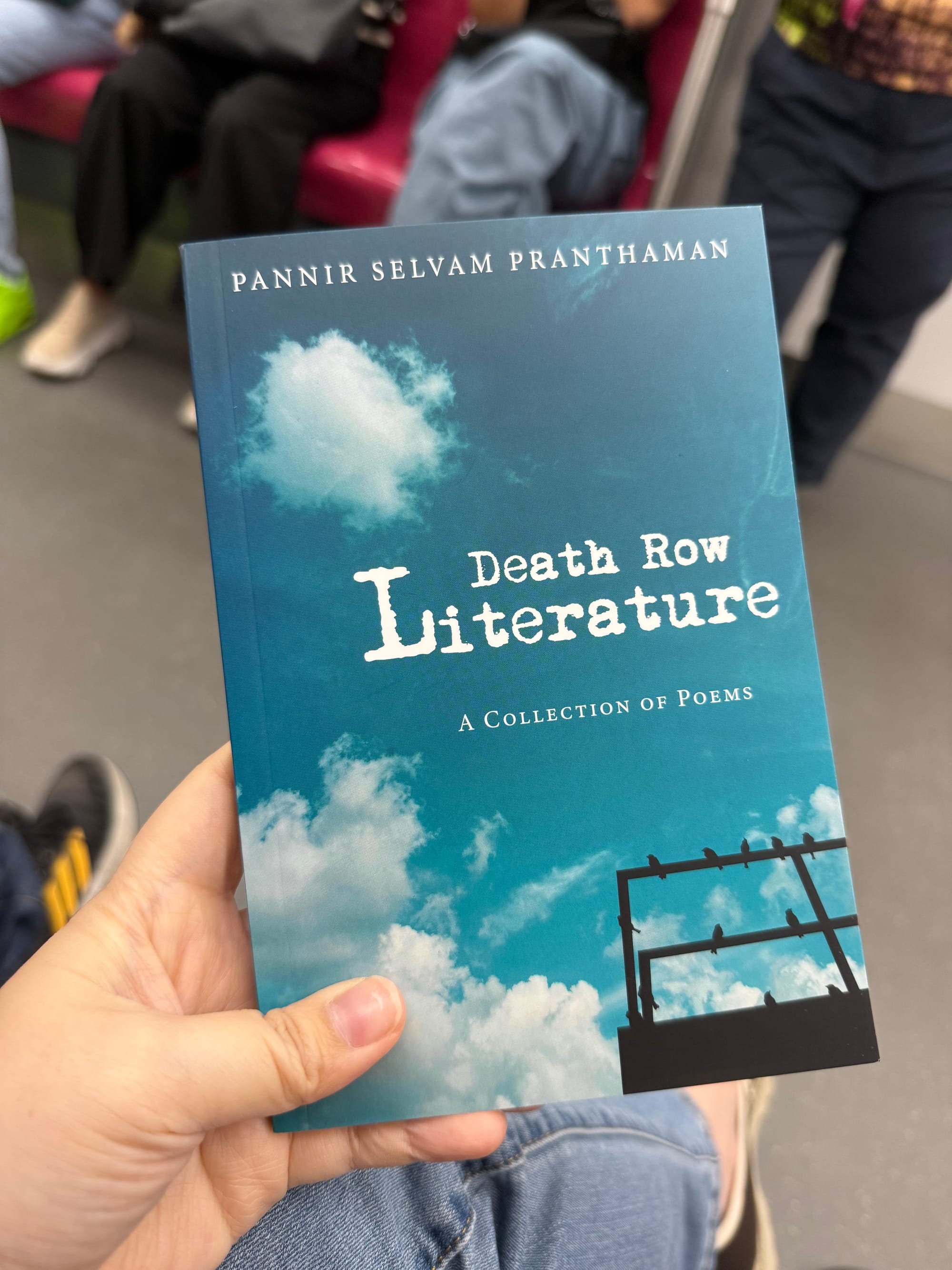I procrastinated writing this newsletter for so long that better news broke, saving me from having to write too much about a billionaire tycoon having to pay a fine.
Mercy (kind of), at last
A minor miracle. Tristan Tan Yi Rui, who was sentenced to death in 2023, has been granted clemency and had his death sentence commuted to life imprisonment. This is the first time clemency has been granted to a death row prisoner since 1998—close to 30 years ago.
Responding to media queries, the Ministry of Home Affairs said that Tristan had been arrested as part of a wider Central Narcotics Bureau (CNB) operation. One of the others caught in the same operation had been tried separately for a capital charge but did not get the death penalty, so Cabinet advised President Tharman Shanmugaratnam to grant clemency to address the "disparity in their respective outcomes".
I still find it kind of confusing, but I'm happy for Tristan and his family. I hope more pardons are on the horizon.
Hawker woes
It feels like we’ve been here before with the Social Enterprise Hawker Centre (SEHC) model… but I guess even problematic dramas get reruns.
Just before National Day, KF Seetoh shared on Facebook that hawkers at the Bukit Canberra Hawker Centre, operated by Canopy Hawkers Group, are contractually obliged to participate in a “Pay-It Forward programme” where, according to the excerpt of the contract he shared, they have to “set aside 30 meals a month at the Stall Tenant’s own expense towards the Pay-It-Forward programme”. On top of that, the contract also says that the hawkers “shall participate in loyalty programme under the Company’s CRM System and set aside 30 meals a month at the Stall Tenant’s own cost and expense towards the fulfilment of meal awards through the Company’s loyalty programme(s)”. They are also expected to offer budget meals, charged at $3–$3.50.
This attracted the attention of Ong Ye Kung, the MP of that constituency. On the point about providing free meals, Ong said that Seetoh’s post “does not present the full picture”. According to him, the hawkers had agreed to provide 30 meals a month for low-income residents, and this was later adjusted to 100 meals over the entire three-year lease.
“There are no penalties if they do not or are unable to provide the meals,” Ong said, adding that “this simple, well-intentioned initiative” hasn’t even started yet anyway.
There's also the blue box thing
There was also a dispute about blue baskets that the hawkers have behind their stalls, but I’m putting this in a toggle box because I feel it's much more minor.
In an earlier Facebook post, Seetoh had said that the hawkers are charged $70 a month for the "space suppliers use to leave hawker's orders for the day". Ong's response was that "there is no such practice of charging for the use of the blue baskets at the back of their stalls". Seetoh clapped back, publishing receipts: screenshots of his chat with a hawker confirming that they're charged for using that space. So it's not about charging for the use of the blue baskets, but charging for the use of the space that the blue baskets occupy. This was confirmed by Canopy Hawkers Group.
If there's no penalty or repercussions for not providing the free meals, then why is it in the contract? CNA got a copy of the 2024 contract and asked lawyers about it—they say that the use of the word "shall" does indicate that it's not voluntary.
The fundamental question here: Why should hawkers be obliged to provide budget or even free meals? They're small business owners, not a government social welfare department.
Anyway, there's value to making noise, because now Canopy Hawkers Group says they'll be removing the free meals clauses from the contract when tenancy agreements are next renewed.
Got some more…
💸 Ong Beng Seng, convicted of abetting the obstruction of justice in the S Iswaran case, has been fined $30,000—the maximum the district court could impose. He would have gone to prison, except the court exercised judicial mercy because he has a rare form of blood cancer.

Something interesting
After finishing Sarah Wynn-Williams’s memoir, Careless People: A Cautionary Tale of Power, Greed, and Lost Idealism, I dove straight into Mindf*ck by Cambridge Analytica whistleblower Christopher Wylie. I’m about 30% in—he’s only just getting into Cambridge Analytica’s beginnings—and you can already see the train wreck coming.
A common, very frustrating thread running between these two books is how our politics and realities have been—and continue to be—shaped by the whims and pet projects of very, very rich and morally bankrupt people and those who enable them. They’re not stupid or dumb, but they could all use a good dose of the Imposter Syndrome that so many of us get when we shouldn’t. The hubris is just off the charts; they’re so confident in themselves and their views of the world that they don't even bother to stop and think about the consequences or impact on other people. Sometimes shit happens because of unintended side effects; other times the effects are very much intended because some rich dudes want to play at being emperor.
Where should we go from here? I don’t think it’s realistic to junk social media entirely; the fact still remains that, in authoritarian environments like Singapore, social media and other online spaces do provide some opportunity for activism and a more diverse mix of voices. But continuing to hurtle down this path without meaningful change seems like heading straight into (even more) disaster.
Thank you for reading! As always, feel free to forward this weekly wrap to anyone you like, and spread the word about this newsletter!
